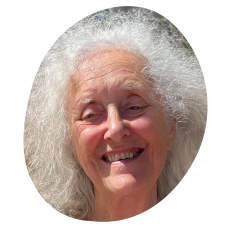How would you define
Global Citizenship Education?

Frans Lenglet – GAP International
It’s learning about the world and learning how all those different people, in different societies, in different countries, from different backgrounds, can not only live together but also construct a fair and just society.

Jodie Velarde – GAP International
To me, Global Citizenship Education is all about empowering people to take action on causes that benefit people and planet all over the world. Often, it’s helpful to give a local context before delving into the global implications, but it’s a huge and important topic for the whole world to consider.

Marylin Melhmann – GAP International
On the one hand, it’s about facts and knowledge, the rights and responsibilities of humans, the rights of other beings. There is a certain amount of factual knowledge that needs to be transferred to the pupils. That’s the first thing. The second thing is: it is a lens through which all other subjects can be viewed. In other words, it’s a set of values that you can apply to any topic that you are working with or teaching. And then, the third thing is: it’s a skill set which enables transformative change. Because we are not talking about an education to accept what is the status quo, we are talking about education to build a better future. And so, it has to be teaching the skills needed to enable transformative change.

Sandrina Felder – GAP International
For me, I guess it’s like getting a sense of belonging together and living in one world, sharing experiences, sharing topics that concern us all, and also to get active together when it comes to different global challenges like, for example, climate change or peace or whatever. I mean, some challenges they don’t stop at borders, they concern everyone of us. I think Global Citizenship Education for me means to get a sense of this all, and to get to know the basics of different kinds of topics.
